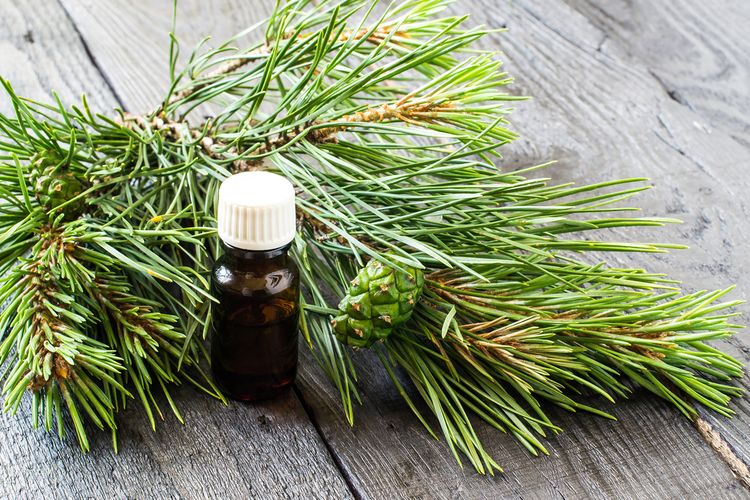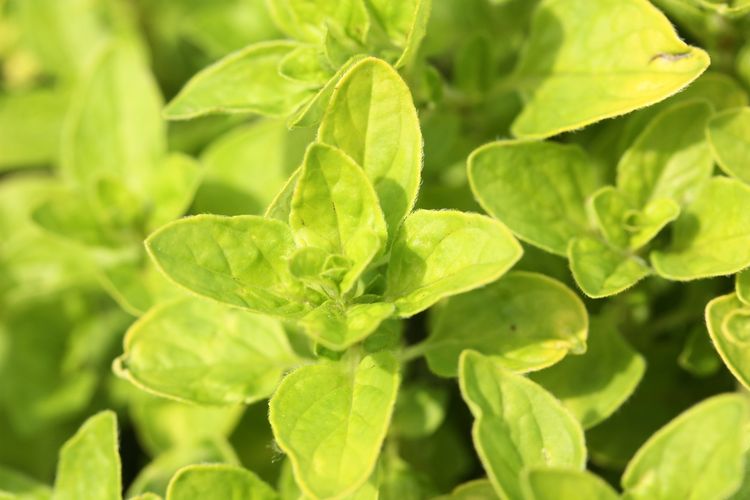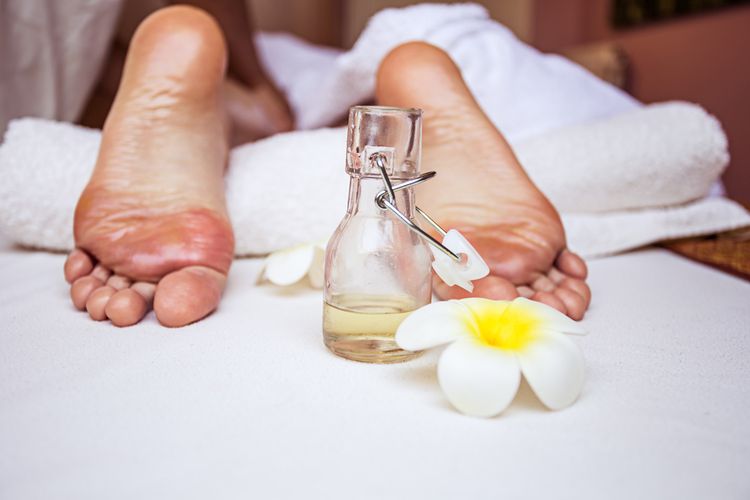The 15 Most Popular Essential Oils, And The Benefits Of Each

Essential oils have been used medicinally, cosmetically, and even spiritually for over 5,000 years by cultures as far back as the ancient Egyptians, Indians, and Greeks! And still today, essential oils are used medicinally and for relaxation, beauty, and home cleaning.
Through the practice of aromatherapy, trained aromatherapists, physical and massage therapists, nutritionists, and even doctors can use essential oils to holistically improve your physical, mental, and emotional health. Even some hospitals are starting to regularly use essential oils to treat anxiety, depression, and infections.
Essential oils are powerful carriers of health and well-being— but what are they exactly?
What Are Essential Oils?
Essential oils are concentrated collections of the most potent medicinal compounds of a plant or tree— the oils they use to protect against insects and adapt to their surrounding environment.
These oils are extracted from the root, leaf, seed, flower, fruit, or bark of a plant or tree, usually by way of a distillation process where steam is used to separate the plant’s water-based compounds from its oils.
The resulting concentrations are made of plant-based chemicals, also known as phytochemicals, such as ketones, which are full of healing properties. The molecules that compose these phytochemicals are much smaller than those found in the fatty oils of nuts and vegetables, and so they can more easily penetrate cells and in some cases even cross the blood-brain barrier! This translates to quick and potent healing properties.
Essential oils have been shown to:
- Improve digestion
- Reduce symptoms of flus and colds
- Relax and soothe sore muscles
- Treat many skin conditions
- Balance hormones
The 15 Most Popular Essential Oils and the Benefits of Each
There are as many essential oils as there are plants, which means there are quite a lot! To avoid getting overwhelmed with all the choices, start with the following 15 most popular essential oils.
Clove: Clove possesses anti-bacterial, anti-parasitic, and antioxidant effects, making it a great addition to both homemade bug sprays and pest-killers and your “natural first-aid kit.” It also smells delicious and can be used to clean yoga mats, get rid of kitchen odors, and make homemade cologne (mix with cypress) and deodorant (mix with coconut oil and beeswax).

Oregano: Oregano is a powerful antiseptic, great for killing fungal infections and boosting the immune system. Next time you feel a cold coming on, grab some oregano oil!
Peppermint: A medicinal powerhouse, peppermint improves digestion, focus, and energy levels and reduces fevers, headaches, nausea, muscle/joint pain, bad breath, achy muscles, and symptoms of asthma and bronchitis. It’s also useful in DIY bug sprays and is delicious in tea.
Cypress: If you suffer from varicose veins, poor circulation, or low confidence, then cypress is for you! Cypress can also help heal broken bones, relieve arthritis pain (mix with wintergreen and lemongrass), and ease sore, achy muscles (mix with peppermint and ginger oils or coconut oil and cayenne pepper).
Myrrh: With powerful anti-microbial properties, myrrh is great for use on skin issues to prevent or reduce infections. It can also reduce stretch marks (mix with frankincense and grapefruit oils), provide natural SPF protection, and balance your hormones.
Rose: Rose oil is a potent anti-inflammatory, and it makes a great addition to any homemade moisturizer—if you can afford it, that is (up to $1,000 for 15ml!). It can also be added to baths to improve mood and reduce depression.
Grapefruit: Grapefruit contains d-limonene, which boosts metabolism and helps with fat loss and cellulite reduction. It can also help reduce stretch marks, increase concentration, improve circulation, relieve hangovers, and when combined with one-fourth cup yogurt, one-fourth cup cornmeal, and five drops of patchouli and lavender oils, make a mean facial scrub!
Lemon: All of your homemade cleaning products should include lemon, which is great for washing bathrooms, dishes, counters, produce, and things like shoes and sports gear. Lemon’s also helpful for random things like strengthening nails, whitening teeth, and relieving hangovers and morning sickness!
Ginger: Ginger reduces inflammation and can support healthy joints and improve your digestion (especially when mixed with fennel and peppermint oils). It can also relieve nausea, morning and motion sicknesses (try combining it with peppermint and lavender or wild orange and lemon), help ease achy muscles, and boost metabolism.

Rosemary: This oil is good for your head, both inside and out! Add it to shampoos and conditioners to thicken hair, stop hair loss, and reduce dandruff, and ingest it for improved brain function and memory while working or studying.
Frankincense: This oil is known to reduce inflammation, age spots, wrinkles, sunspots, stretch marks, and scars, boost the immune system and brain function, and fight cancer by shrinking brain tumors. It’s also been linked to heightened emotional well-being and spiritual awareness.
Tea Tree Oil (Melaleuca): Mix with lemon for a natural anti-bacterial and anti-fungal all-purpose cleaner for use on mold, sports gear, carpets, and in bathrooms. It can also be used in DIY acne face washes and, because it smells so good, deodorant!
Sandalwood: Keep this oil in your bedroom, as it reduces anxiety, helps with relaxation, and improves libido and energy levels! It also helps reduce wrinkles, just for good measure.
Lavender: Lavender is commonly associated with relaxation and stress reduction and is often used in massage therapy, detox baths, and sleep therapy. It’s also great for skin (it can reduce wrinkles and treat burns, sunburns, cuts, eczema, psoriasis, bug bites and stings, acne, dry/cracked feet), hair (thickens hair, supports hair growth, reduces dandruff, great in homemade shampoos/conditioners), and relieving nausea and fevers.
Eucalyptus: This invigorating, purifying oil helps treat respiratory issues like asthma, coughs, bronchitis, and sinusitis. It’s also useful in bug sprays and for removing shower mold (add to tea tree oil) and cigarette smoke (combine with rosemary and tea tree).
12 Ways to Get Essential Oils into Your Body
Essential oils are used in three main ways: they’re applied topically, inhaled aromatically, and ingested orally. Before we dive in, know that for each of these methods, you can use either diluted or undiluted oils.
Diluted oils use a carrier oil, such as coconut, olive, avocado, or almond, to reduce the potency (but not the effectiveness!) and increase the spread of the oil. It’s best to use diluted oils for children and those with sensitive systems, typically starting with 10 drops of oil per teaspoon of carrier oil (10% concentration). Undiluted essential oils provide a more intense experience, so take it slow!
With that out of the way, let’s take a look at the different methods.
Topically
Essential oils are powerful medicines when applied to the skin, because their small molecules are easily absorbed into the blood stream for quick, efficient distribution throughout the body.
- Massage: For an even more relaxing massage experience, incorporate oil into your practice by applying it to the skin with gentle, smooth strokes. Consult a trained practitioner for guidance as to which oils should be diluted.
-

PHOTO: PIMPIC/SHUTTERSTOCK.COM Soles of the Feet: Because the soles of the feet have some of the largest pores in the body, massaging a few drops of oil into them before bedtime is a wonderful way to end the day and access their healing properties while you sleep.
- Essential Oil Bath: For a rejuvenating, healing soak that combines topical and aromatic absorption, add a few drops of oil into a warm bath. You can also add some coconut oil or full-cream milk to help your body absorb the oils. And if you have a bottle with only one or two drops left, feel free to just drop the whole bottle in the bath!
Aromatically
You can also breathe in the healing properties of essential oils, either by using a diffuser or by simply inhaling the aroma directly. Doing so allows the oil’s molecules to be absorbed through blood vessels in the nose for quick access to the brain and lungs, enabling easy circulation throughout the body.
- Ultrasonic Diffusing: An ultrasonic diffuser is a device that uses water, air, and ultrasonic vibrations to diffuse and dilute oils into the air as a fine mist. These devices are perfect for extended absorption over the course of several hours and do not reduce the therapeutic value of the oil in any way. Try mixing different oils together for maximum benefits.
- Car Diffusers: Portable diffusers are also available, allowing you to enjoy essential oils while running errands or commuting to work. You can also just put a few drops of oil onto a cotton ball and stick it into an air vent!
- Nighttime Salt Bowl: Dripping 10-15 drops of an essential oil into one-fourth cup of Epsom or sea salt flakes leads to prolonged evaporation. Place the bowl near your bed while sleeping to absorb its health benefits throughout the night.
- Terracotta Pendant: Take a terracotta pendant, drop a single drop of oil on it, and wear it around your neck for aromatic benefits throughout the day.
-

PHOTO: PHOTOBOBAK/SHUTTERSTOCK.COM Perfume Replacement: Avoid man-made, toxic perfumes filled with chemicals and hydrogenated oils and instead combine essential oils to create your own! Drip drops onto your pulse points, collarbone, the sides of your neck, and behind your ears.
- Bottle Wafting: Hold a bottle of oil at heart level and slowly bring it up to your nose, wafting in the smell. Start with shallow breaths and slowly breathe deeper if it feels right.
- Hand Cupping: Drip a few drops of oil into your palms, rub your hands together to spread out the oil, and then cup them over your nose and mouth. Again, start with shallow breaths before deep ones. Avoid the eyes here, and if you do get some in your eyes, wash it out with a carrier oil, not water.
- Steam Bowl: For rapid absorption, drip one or two drops of oil into a bowl of steaming water (use filtered water so no chlorine is inhaled). The heat will slightly reduce its therapeutic value but will quickly vaporize the oil for direct and potent delivery. With a towel covering both your head and the bowl, place your head over the bowl and breathe deeply, making sure to keep your eyes closed.
Ingestion
- Oral Ingestion: Essential oils can be powerful forms of medicine when ingested, but because of their potency, you should be cautious and consider using this method only with the guidance of a certified health practitioner. Certain oils (like clove and oregano) are considered too powerful for direct ingestion and should be diluted with water and taken sparingly for no more than a week. Avoid overwhelming your system, and remember that one to three drops diluted in water is usually plenty.
NOTE: Because of the powerfully medicinal, hormone-affecting properties of essential oils, people who are pregnant or on blood-thinning heart medications should avoid the following oils:
Pregnancy: Cinnamon, clove, clary sage, fennel, jasmine, cypress, marjoram, myrrh, rose, thyme, sage, rosemary, and basil.
Heart Medications: Cypress, ginger, sage, rosemary, thyme, and clary sage.
Summary
When a medicinal practice lasts through thousands of years of history, it’s usually for a good reason!
Essential oils are still used today because they so clearly benefit our lives. With the above information, you’re well-equipped to start incorporating the healing power of essential oils into your own life.
As always, when introducing your system to new things, take it slow! Dilute your oils, start with shallow breaths, and use some of the gentler application methods to avoid overwhelming your system.
Make sure to buy only organic, certified pure, therapeutic-grade essential oils to ensure they are not synthetic and medicinally worthless.


